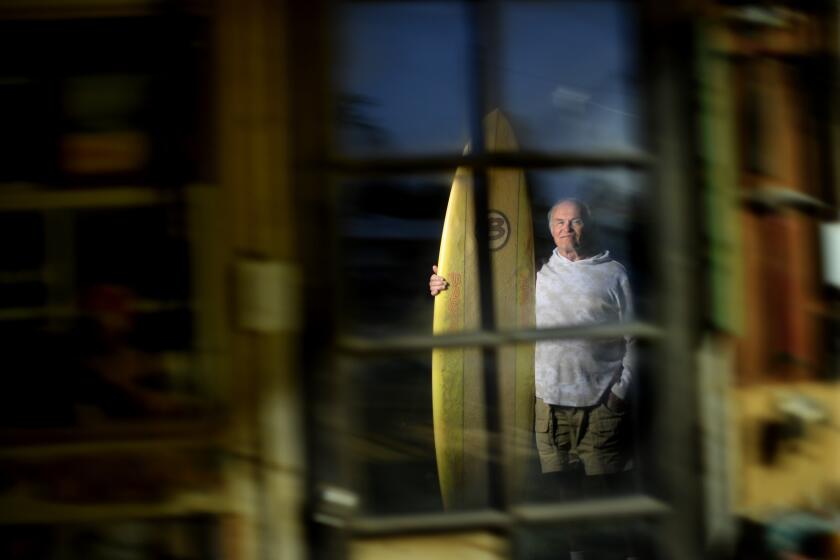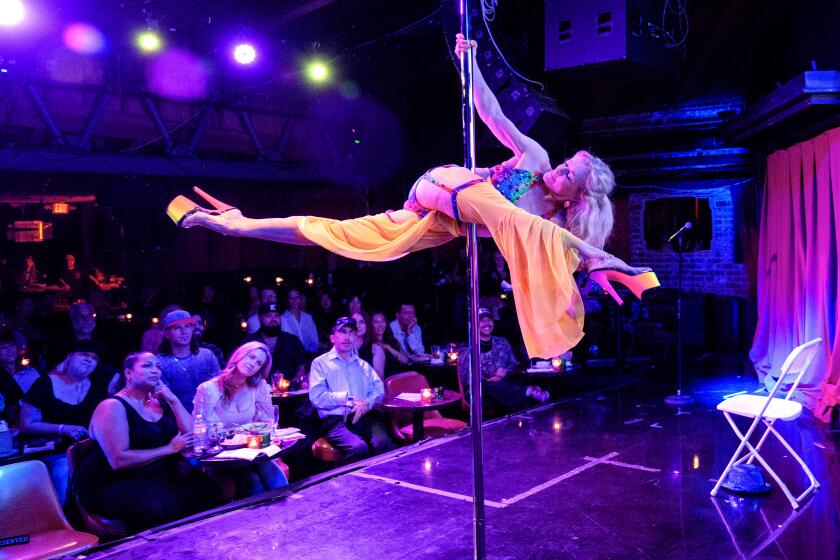Connected by love and loss, they reaped what Rodney sowed — and gave it away
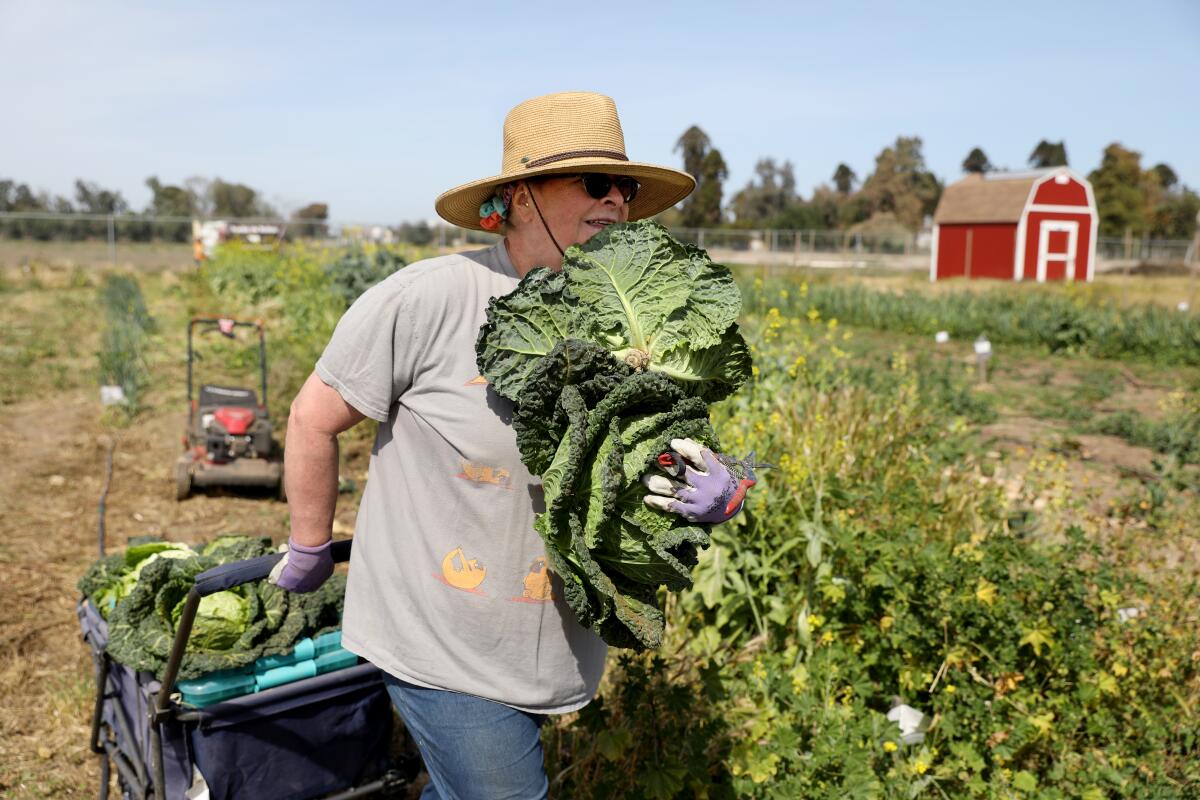
FRESNO — On a spring day when the mustard greens were still tender, Sherril Wells stopped harvesting, raised her arms and danced to Curtis Mayfield’s “Superfly” playing over her SUV’s speakers.
Her friend Liza Apper had told her that joy and grief could exist together. She thought this must have been what Apper meant: a flash of being alive, even as she grieved for Rodney Wells.
She and Rodney — who died in December of a heart attack so sudden that he never cried out — had tried to make it as organic farmers. But they lost money every year. They decided that if they were going to pay to farm, it should be only a labor of love. In 2016, they sold the farm and in their yard started growing organic produce to give to people who couldn’t afford fresh food.
They grew in planters in the front and back of their house on Huntington Boulevard, a stately street blocks from a troubled urban core. They chose the neighborhood because of its diversity, including other interracial couples such as Sherril, who is white, and Rodney, who was Black.
Next to their driveway, they flew an American flag from a tall pole because of Rodney’s military background and because he did not want to cede its symbolism to racists. They expanded to a plot at the African American Farmers of California’s demonstration farm behind Kearney Park on Fresno’s west side.
After Rodney’s death, there were days when Sherril wished that she had died too. But she was determined to keep growing food to give away.
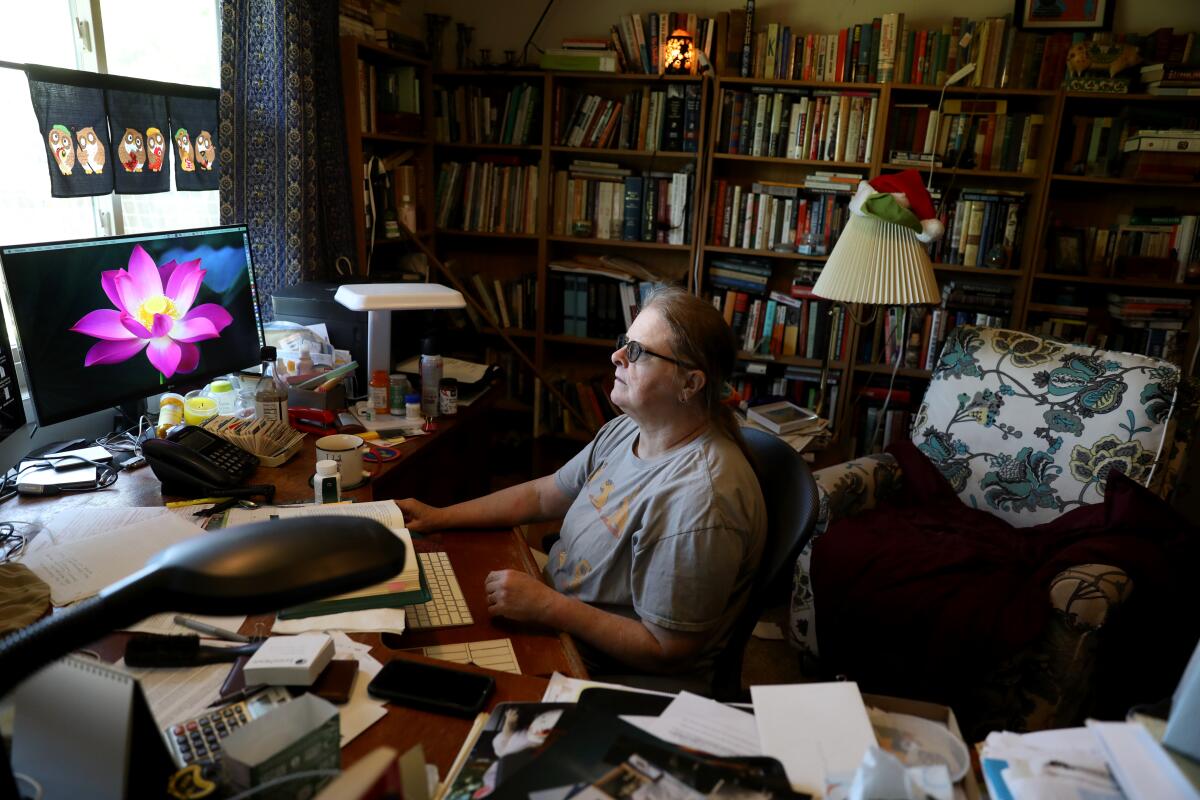
During the week, she worked as a judicial attorney with the Superior Court. On weekends, she worked at the farm and found solace where she could smell dirt, hear the bees buzzing in the nettles and get scolded by jays nesting in the oleander windbreak.
Maybe it was because Rodney had loved the place. He was a retired command master chief, the highest noncommissioned rank in the Navy. (If someone called him “sir,” he always said, “No thanks, I work for a living.”)
The Olympic trials for surfing are being held in El Salvador. The seeds for this were planted decades ago by young Californians looking for good waves.
Will Scott, who founded the Black farmers group, was a retired submarine engineer, and there were Pete and Ken and Bill, all Vietnam veterans. They liked to walk the rows and make jokes that only they would get.
But Rodney’s best friend was probably Carlos Luna, quietly weeding a few rows away. Sherril thought Luna came only on the weekends, which she had hired him to do. What she didn’t know was that Luna also came during the week on his way to his job at a farm and manufacturing plant. He checked the irrigation and fixed anything that needed to be fixed.
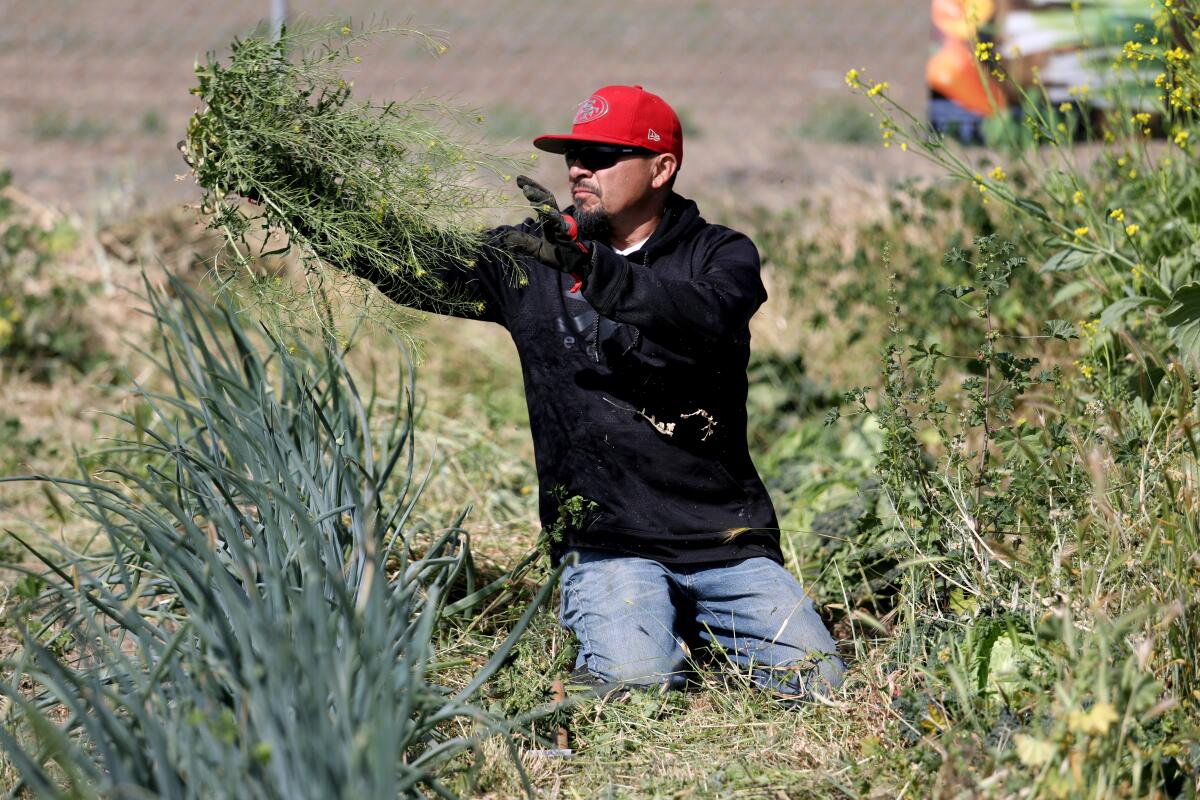
Luna had started working for the Wellses when they owned their farm. Rodney always presented the day’s jobs with military precision: tools laid out, tasks listed. Luna would get straight to work, clearly sensing that Rodney was not one for chitchat.
After 10 months of working silently together, Rodney initiated conversation: “What did you do this weekend? How are your children?”
One day he said, “Carlos, you are a good man. I like you.”
Carlos said, “Rodney, you are a good man. I like you too.”
They started taking what Rodney called water breaks and talked over many things including their childhoods and the troubles each had seen, one as a Black man, one as a Mexican immigrant.
During the pandemic, anyone who experienced loss did so in a vacuum. There was no funeral when Rodney died, no communal mourning with physical touch. Sherril liked to work at the farm with Luna because he loved Rodney too and he didn’t seem to mind when she cried while they worked.
::
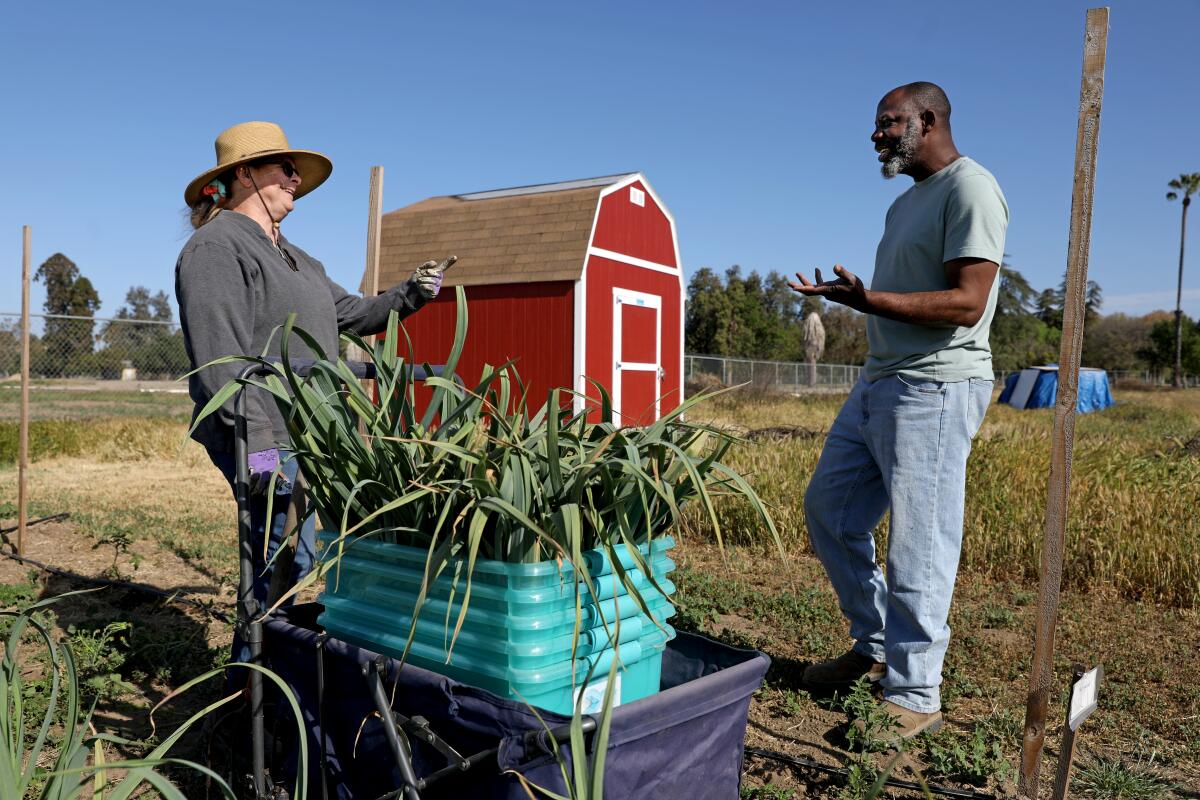
By the time the mustard greens, grown from seedlings that Rodney planted, were bolting, Luna found himself feeling — What was the word? He didn’t want to use “angry” — how could he be mad at Rodney for dying?
But he was on his knees, weeding around the garlic, feeling upset, when he found himself talking to Rodney in his head: “You just left and didn’t say anything to me, man. You didn’t even say goodbye.”
A week later, Luna had a dream. He saw Rodney in the field. He was showered and wearing clean clothes. Luna could feel Rodney wanted to say something, but in the dream, Luna just kept working. The next week he had the same dream, but this time his eyes met Rodney’s.
Luna told Sherril about his second dream as they spread weed-suppressing cloth over the ground where they were going to plant herbs.
“He looked happy. I think he was trying to tell me he is OK,” he said, tears slowly dripping from beneath his sunglasses. “It’s like he’s gone, but not gone-gone. You know?”
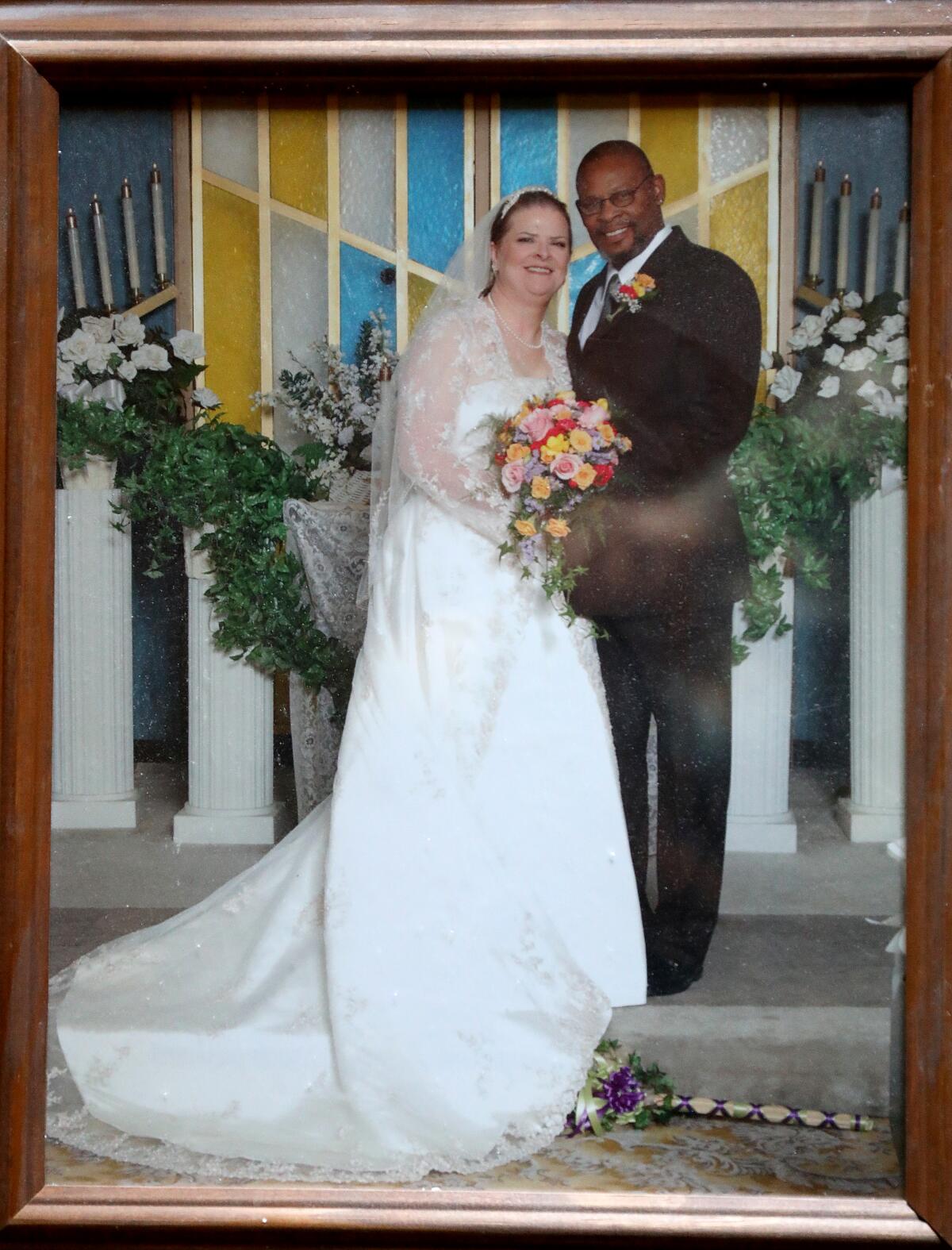
Sherril had been reflecting on how Rodney’s life was in defiance of circumstance. His father had been impatient and cruel. Rodney was patient and kind.
As a young seaman, other sailors had called him racial slurs. He and his best friend, Slim, had studied with flashlights under the covers for the petty officer test and soon outranked the bigots who had to show them institutional respect.
“When you’re married, you can’t go around constantly bowing down, worshiping somebody. But truth was, I hero-worshiped him. There was an unshakable dignity about Rodney,” Sherril said.
It was a late marriage, after they had both traveled far from home state Kansas. Whip-smart but awkward, Sherril had learned Mandarin, lived in China, moved to Los Angeles and collected all the shiny accoutrements to try to convince herself she was successful.
She became an alcoholic like her father. She was nine years sober when she met Rodney, who was born in Kansas, raised in Compton and had been stationed all over the world. He’d had an earlier marriage and kept a self-imposed loneliness.
Sherril and Rodney’s marriage hit a rough patch when he couldn’t understand why she would sometimes get rigid and demand things, such as engaging the parking brake when the car was on flat ground, or how, when she was tired, she’d talk in circles, repeatedly making the same points.
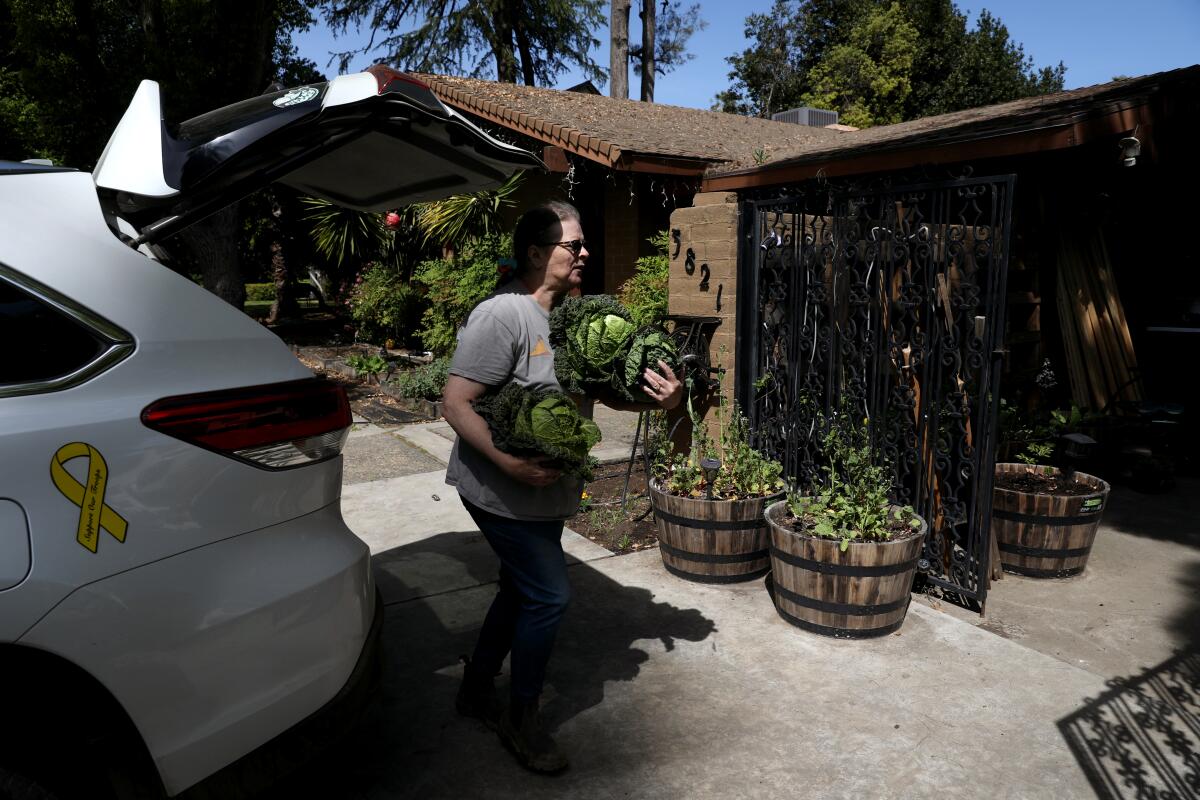
She was diagnosed as being on the autism spectrum. Her lifelong best girlfriend said that fit with everything from before they had known a word for it.
Once Rodney had an explanation, he always put on the parking brake. He showed his care by watching out for her.
“Little things. He made sure I wore a hat so I wouldn’t get sunburned,” she said, touching her reddening face and walking to the car for the hat she’d forgotten.
At her house that afternoon, she cleaned the mustard leaves, spinning them in her washing machine, then bagged them. In the backyard, she had hung curtains of drying garlic from clotheslines and draped them over citrus trees.
The next morning, while it was still inky dark, she left 14 gallons of salad, 15 gallons of baby collards, 45 bunches of onions, 21 bunches of kale and a lot of garlic in Apper’s car to be delivered to people in an agricultural valley where many can’t afford fresh produce.
The man known as the godfather of California’s organic farming died of cancer at the farm where he loved to work.
Apper, the founder of the St. Benedict Catholic Worker in Fresno, was a woman who combined a dedication to feeding the hungry with an earthy humor. She had once declared it hotter than two squirrels mating in a wool sock, but she didn’t use the word “mating.”
Apper had cut back on some of her work as she went through chemotherapy after a cancer diagnosis. But not the food deliveries. For one thing, there were too many panicked calls for help.
But she also thought of her 39-year-old daughter, Mary, an Afghanistan veteran, who in 2017 was diagnosed with cancer possibly caused by breathing toxic fumes from military burn pits. Mary had once pulled a stranger from a crashed car while driving herself to a chemotherapy appointment.
Apper told herself that if Mary, who died in January, could run toward a car that could explode, on her way to treatment, then she, Mary’s mother, could keep up with food deliveries.
In June — after the mustard had reseeded, the jay’s eggs hatched, and the tomatoes started to ripen — Sherril retired.
During her first week off work, she joined a quilting group to learn the art of stitching separate layers and pieces together into something strong, often as part of a sewing circle.
She watched videos on how to braid the tops of garlic. She wanted to add something pretty to the produce box the African American Farmers of California was going to offer. She would also donate herbs to put in the box as an added value item — like getting a lipstick with purchase, she said.
She finally received word that she had obtained nonprofit status for Rancho de Rodney farm. She planned to offer agricultural training to war veterans, produce more food for the Catholic Worker and add deliveries in Lemoore near the naval air station.
It had angered Rodney that young, enlisted families often didn’t make enough money to afford healthful groceries.
“It breaks my heart that Rodney isn’t here. We were supposed to do this together,” she said, beginning to cry — some of the women in her quilting group had told her to expect sudden, short sobs for a while to come.
“But it feels good that what Rodney planted will keep giving,” she said. “It feels good being part of this community.”
She said Apper was right. Joy and grief do coexist.
More to Read
Sign up for Essential California
The most important California stories and recommendations in your inbox every morning.
You may occasionally receive promotional content from the Los Angeles Times.
